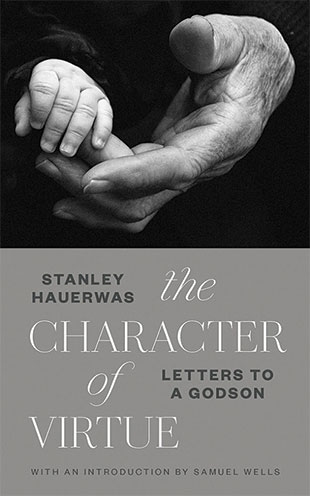In the forward to this theological work, writer, pastor, and theologian Stanley Wells explains how he asked Stanley Hauerwas (named by Time magazine in 2001 as "America's best theologian") to serve as godfather for his son Laurie. Both men agreed that Hauerwas would write a letter to mark the child's baptism (October 27, 2002) and one each subsequent year on that anniversary. These anniversary letters, each commemorating a virtue, continued through 2016, with a final missive dated January 31, 2017.
Although Hauerwas laments the fact that "the church has lost its political and social power and is increasingly losing its power to form the lives of even those who want to be Christian," he believes that the Gospels, St. Augustine, and the Holy Spirit are sturdy enough foundations "to help us negotiate the dangers of the world in which we find ourselves."
Instead of beginning with the virtue of love, Hauerwas puts kindness at the head of his list of 14. He sees it as "the very character of God." Throughout these letters to his godson, the author presents the interplay between the virtues. For example, when kindness becomes narcissistic, it needs to be rescued by the virtue of honesty.
One of our favorite chapters discusses the virtue of patience. Knowing how to wait in the midst of suffering or loss is no easy matter. Forming patience takes time, and Hauerwas challenges us to see baseball as a spiritual teacher of "the habits of peace." (See excerpt.) Hauerwas also connects patience with the virtue of hope — it enables us to persevere in the face of difficulties or roadblocks.
Courage is another spiritual resource that is given a deep assessment which takes it far beyond heroism. He reminds his grandson that living nonviolently means recognizing that you have fears but not letting them run your life.
Hauerwas ends with a study letter heralding character as an orientation and an art of living well:
"I've spent a lifetime trying to convince those who think about ethics that character and the virtues are crucial for any adequate account of what it means to live well. Of course, character and the virtues are manifest in the decisions we make, but the kind of decisions and choices we make are determined by our character."
